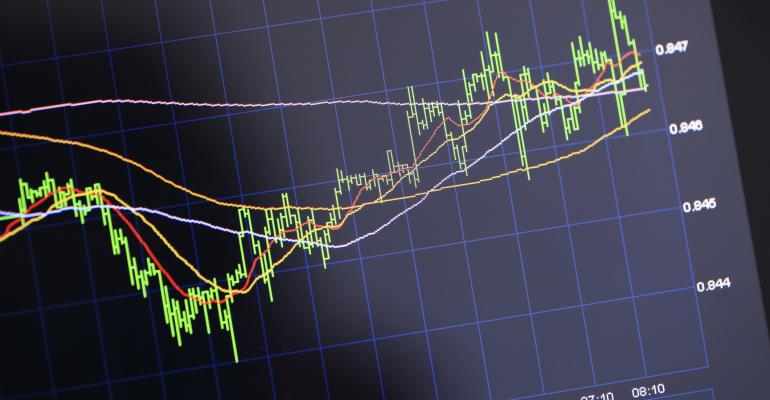No doubt the current energy glut has been a boon to consumers. Prices for West Texas Intermediate (WTI) grade crude have plummeted 56 percent in the last six months, heating oil’s off 39 percent and natural gas has cheapened by 33 percent. If you’ve been shelling out money for home heating over this very cold winter, you’re probably very happy. Or at least happier than you were last winter.
You’d think that the makers of solar panels might not be so pleased by the plunge in energy prices. After all, the solar energy marketing strategy largely relies on consumer disaffection with fossil fuel costs. Investors in solar technology companies, too, might be feeling despondent about their competitive position nowadays.
That upset has been, in fact, reflected (er, perhaps absorbed) in the price action of the Market Vectors Solar Energy ETF (NYSE Arca: KWT), an exchange-traded fund tracking a global index of more than two dozen solar firms.
KWT’s price was beaten down last summer when crude oil prices slipped under the $100/bbl mark. At the end of July, KWT was changing hands at $78 per share; now it’s vacillating near $63.

And it’s there that KWT seems to have found some footing. On an intraday basis, it’s bounced off the $63 level not once, not twice, but four times. From a technical standpoint, that makes a move to the $71 possible in the near term. And, if $71 is taken out on the upside, resistance at $77 can then be tested.
There are fundamental reasons for a rebound. First, there’s Newton’s Third Law but more important is recent data showing growing demand for solar panels. Globally, solar market demand was approximately 44 gigawatts (44GW, or 44 billion watts) last year. According to Energy Trend, a research division of TrendForce, worldwide solar demand is projected to rise 17 percent, to 51.4GW, in 2015, despite the current energy glut.
That should engender sunnier dispositions amongst KWT investors.
Brad Zigler is REP./WealthManagement's Alternative Investments Editor. Previously, he was the head of marketing, research and education for the Pacific Exchange's (now NYSE Arca) option market and the iShares complex of exchange traded funds.





